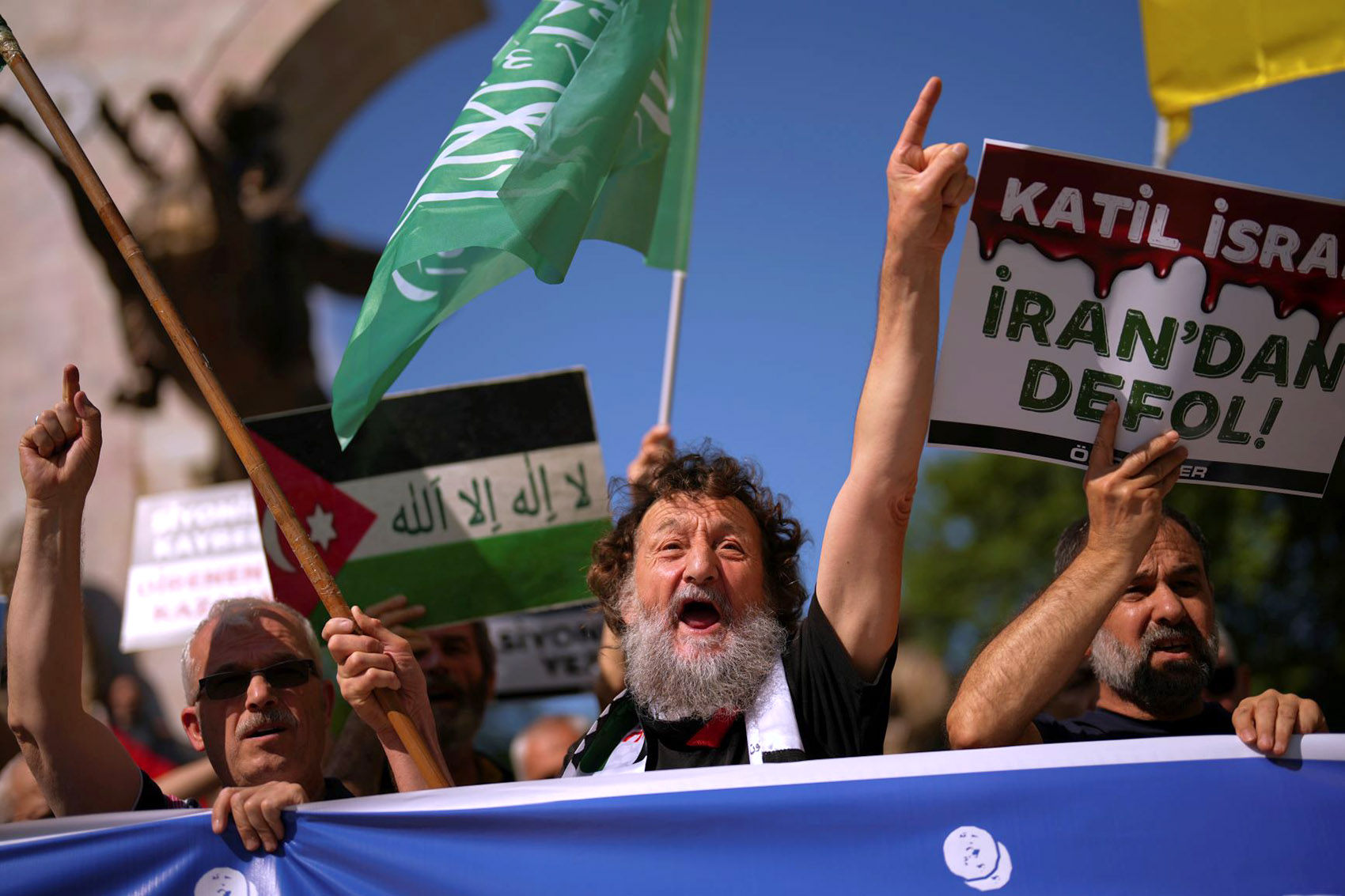Teheran warns Washington over attacks as it asserts right to self-defense

Editor's note: As the United States launched attacks on three nuclear sites in Iran over the weekend, this page examines the escalating Middle East crisis despite renewed diplomatic efforts by relevant parties, and the potential economic ripple effects that threaten regional stability and global markets.
Strongly condemning the United States' "brutal military aggression" against Iran's peaceful nuclear facilities on Sunday, Iran emphasized its right and will to defend itself and struck Israel with new missiles.
The US is joining Israel in its attacks on Iran "to its own detriment", Iranian Supreme Leader Ayatollah Ali Khamenei has warned.
The US strikes on nuclear energy facilities at Natanz, Fordow and Isfahan escalated the conflict and added to damage inflicted by Israeli airstrikes since its surprise attacks on June 13, raising alarm over violations of international law and consequential contamination.
READ MORE: Iranian president warns US of retaliation after strikes on nuke sites
In a Sunday statement on the X platform, Iran's Foreign Ministry said: "The world must not forget that it was the United States that, in the midst of a diplomatic process, betrayed diplomacy by supporting the genocidal and law-breaking Israeli regime to impose a war of aggression on the Iranian nation.
"The warmongering and lawless regime of the United States of America is held fully responsible for the dangerous consequences and far-reaching implications of this egregious act of aggression and heinous crime," the statement said, adding that Iran has "resolved to defend Iran's territory, sovereignty, security and people".
It also called out the United Nations, the UN Security Council, the International Atomic Energy Agency, and other relevant international bodies "to take urgent and decisive action in response to this appalling breach of international law".
The Atomic Energy Organization of Iran has condemned the US attacks on Iran's nuclear sites, which it said contradicts international law, especially the Nuclear Non-Proliferation Treaty, according to its statement.
Morteza Heydari, a spokesman for Qom Provincial Crisis Management Headquarters, was quoted by Iran's Tasnim News Agency as saying: "Hours ago, after Qom's air defenses were activated and hostile targets were identified, part of the Fordow nuclear site was attacked by enemy airstrikes."
Iran had been expecting attacks on Fordow for several nights, and the facility had been evacuated before the airstrikes occurred, and did not suffer irreversible damage, according to an adviser to Iran's Parliament speaker.
In a phone call with his Egyptian counterpart Abdel Fattah El-Sisi on Sunday, Iranian President Masoud Pezeshkian said his country would give a firm and decisive response to the "aggression by the US-backed Israeli regime", noting Israel has been trying to drag the US into the conflict.
The Islamic Revolutionary Guard Corps said, for the first time, it launched multiwarhead Kheibarshekan (castle buster) ballistic missiles in its retaliatory strikes against Israel, Tasnim News Agency reported on Sunday.
Israeli public broadcaster Kan, citing an anonymous Israeli official, said Israel was "in full coordination with the US" during its attacks on Iran.
Inside Israel, sirens sounded across central and northern parts as Iran launched ballistic missile strikes, its first since June 13 after the US attacks, against Israeli targets, in addition to drone and other missile retaliations. The Times of Israel reported at least two dozen people were wounded.
The Israel Defense Forces, early on Sunday, decided to shift all areas of the country from Partial and Limited Activity to Essential Activity, thus prohibiting educational activities and gatherings, except for essential sectors. The IDF also launched more airstrikes against the military and related targets inside Iran.
Call for political solution
Countries in the Asia-Pacific region have called for a political solution while voicing condemnation of or concern over US attacks on Iran's nuclear energy facilities.
Iraqi government spokesperson Bassem Al-Awadi said that "targeting nuclear facilities inside Iran is a dangerous threat to security and peace in the Middle East and exposes regional stability to great risks".
Pakistan's Prime Minister Shehbaz Sharif reaffirmed Pakistan's unwavering solidarity with Iran on Sunday in a telephone conversation with Pezeshkian. Sharif conveyed Pakistan's condemnation of the US attacks against Iranian atomic energy facilities, according to a release by the Consulate General of Pakistan in Hong Kong and Macao SARs.
Saudi Arabia's Foreign Ministry, in a statement on X, affirmed its condemnation and denunciation for violating the sovereignty of the Islamic Republic of Iran, expressing the need to "exert all efforts to exercise restraint, de-escalate, and avoid escalation".
Oman, Qatar, Lebanon, the United Arab Emirates and Palestine also expressed deep concern, condemning the escalation resulting from the direct US airstrikes against Iranian facilities, and urging continued political talks to end the conflict. Australian and New Zealand officials, too, voiced concern, stating they "continue to call for de-escalation, dialogue and diplomacy".
Yemen's Houthi group on Sunday said the US administration's "reckless aggression against three Iranian nuclear sites is a blatant declaration of war against the brotherly Iranian people. We declare our full support for the brotherly Iranian people".
ALSO READ: Mideast tensions escalate as US attacks Iran's nuclear sites
Other countries that slammed the US included Venezuela, Cuba, and Chile, calling the attacks "illegal".
Arhama Siddiqa, a research fellow at the Institute of Strategic Studies Islamabad in Pakistan, told China Daily the US strikes on Iran's safeguarded nuclear sites, carried out despite IAEA oversight and warnings, "mark a dangerous turn in regional crisis management".
"By bypassing Arab League and Organisation of Islamic Cooperation diplomacy, Washington has signaled a pivot from consensus-building to unilateral force, widening the rift between Western and regional approaches," said Siddiqa.
"Moreover, IAEA chief Rafael Grossi has repeatedly warned that attacks on nuclear infrastructure 'cause a sharp degradation in nuclear safety and security' and risk radiological or chemical contamination, even if no public release has yet occurred, 'nuclear facilities must never be attacked, regardless of the context'," said Siddiqa.
Agencies contributed to this story.
Contact the writer at jan@chinadailyapac.com


